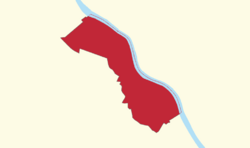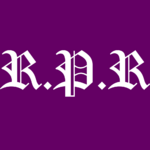Empire of Rheinwall
This article refers to a nation which is currently in a state of inactivity. You can help make the article reflect that or ask on the talk page for further information. |
Empire of Rheinwall | |
|---|---|
| Motto: "The bright blessed day, the dark sacred night" | |
| Anthem: "My dear motherland" | |
 Soft claims, Sector of Bonn | |
| Status | Active |
| Location | Bonn |
| Capital and largest city | Bonn |
| Official languages | English, German, Mohawk, Rheinwall Creole, Ripuarian |
| Recognised national languages | English, German, Rheinwall Creole |
| Recognised regional languages | Mohawk (Newriver), Ripuarian (Franconia) |
| Ethnic groups (2024) |
|
| Religion (2024) |
|
| Demonym(s) | Rheinwallian, Rheinwaller |
| Government | Parliamentary and Elective Monarchy |
• Empress | Lily Jane |
| Legislature | Parliament and Referendum |
| Declaration of Statehood | |
• Statehood | 18 September 2020 |
| Area | |
• Total | 0 km2 (0 sq mi)Territory in the realm of meters |
• Water (%) | 0 |
| Population | |
• 2024 census | 5 |
| Membership | 12 |
| HDI | 0.86 very high |
| Currency | Rheinwall Dollar (Rheinwall Taler) |
| Time zone | UTC+2 (CEST) |
| Date format | DD.MM.YYYY D-M-Y |
| Driving side | right |
| Calling code | +777 (planned) |
| Internet TLD | .rhw (planned) |
Website rheinwall | |
The Empire of Rheinwall, Anglicized and poetic Empire of Rhinevale (formerly also Queendom of Rheinwall, - Rewalde, - Rowalde) is a parliamentary and elective monarchy in which the Empress is elected for life founded on 18 September 2020 with territory in Germany. The Empire was founded with the goals of inclusion and diplomacy, with LGBT and sexual minority rights and anti-racism being among the most important aspects of that, formally recognizing polyamory. Further, the nation aims to facilitate international power and food independence through government programs and world wide trade, thought with historically high volatility in the number of citizens this has not yet been fully implemented. Politically it is divided into two areas of responsibility (also called state), the Queendom of Newriver, with its center being in Upstate New York and the Kingdom of Franconia (Rheinwall), with its center inside Western Germany encompassing areas of the new as well as pacific islands and old world respectively. Rheinwall utilizes a lunisolar calendar alongside the Gregorian calendar, which it uses to keep track of moon phases as well as elections and holidays.
Etymology
Historic names
The historic name "Rowalde" as well as "Rewalde" come from a scrapped conlang called Tonkgha in which the word "rèbhèn" /r̥ɛvɛn/ (rè - land, bèn - tree) was Germanized to "Rowalde" with the connection to trees in the suffix -walde being consciously chosen to reflect the original meaning, although etymologically unrelated. Later, the change was made to "Rewalde", which relates to deer ("Reh" in German) as they're one of Rheinwall's national animals.
Rheinwall
Rheinwall is derived from the Latin VALLIS RHENI, meaning Rhine Valley. The naming derives from the place Rheinwall was established first. Rheinwall can poetically be referred to as Rhinevale, however not in an official capacity regarding the government.
History
Founded on 18 September 2020, the Empress' birthday, Rheinwall was conceived as an emancipatory monarchy. Though originally absolutist, (however elective), it quickly devolved into a parliamentary monarchy. The forum on which communication was faciliated was Discord. However there was a switch to Telegram after a while, and then again back to Discord, and then back to Telegram, where the main communication is going on to this day. Because of being founded during the heigh of the COVID-19 pandemic, Rheinwall didn't see very much activity in person and only had few spikes of activity from 2020-2022, though the population steadily grew in that time.

In early 2023 there was a purge of inactive citizens which made the population plummet to 2021 levels. Though over the rest of 2023 there was a steady influx of new people peaking twice. Though the population growth was followed by a nearly equivalent population drop, where from the peak at eight citizens it took less than a month to plummet to four. Which was the second-smallest population level ever recorded. During that time, activity only peaked during a period of strife.
On 23 November 2023, Rheinwall was retired, though it was revived on 1 Januar 2024, activity has been going up and there are currently eleven citizens, which is the highest it has ever been. The so-called four year plan is also bit by bit being implemented, with focus on the topics of defense, administration, community and culture.
Politics and Government

The Empire of Rheinwall's monarchy is politically active and not merely symbolic in nature. This is mirrored in the powers of the Empress over legislation and the political goals pursued by the nation. However far from being undemocratic, Rheinwall routinely holds Parliamentary elections and has a system in place, allowing all citizens to submit bills that go on to becoming referenda. The Empress and the judges on the Supreme Court can be removed from their offices by referendum as well. For the Empress to be removed a referendum of 80% or more of voters in favor, across a majority of territories is required. For judges that number is a majority of 50% or more in both general population and territories.
The Empire has no separation of powers, though the Empress has stated before that this is due to the small population size. With growing population the Supreme Court is planned to be staffed by three judges using different mechanisms, specifically excluding the Empress, Ministers and Members of Parliament. There are no plans to bar Ministers and the Empress from Parliament.
Empress
The Empress of Rheinwall, currently Lily Jane, is the Head of State of the Empire of Rheinwall and has special powers over legislation and also specificially the constitution, having absolute veto power over changes to it. The Empress may also be Head of Government, though historically there have been times where a Prime Minister was named, acting as Head of Government instead. The constitution gives the Empress power to speak interpretations and corrections on gaps in the law, though this does not extend to directly contradicting it. Empresses of Rheinwall are elected for life, or until resignation or removal, and are not hereditary, meaning that the pool of possible candidates is not limited to the previous Empress' issue. Thus far there has only been one Empress, though there has been precedent for regency in Rheinwall, which is, however, not to be equated with the Empress ever stepping from the throne. The list of regents can be seen in the list below.
| Regent | from - to |
|---|---|
| Tobi | 3 July - 4 July 2023 |
| Servilia Corvina | 4 July - 30 July 2023 |
The Empress of Rheinwall is properly addressed by "Her/Your Imperial Majesty, Empress" followed by her name, a roman numeral (von [House]) "zu Rheinwall" and, if applicable, further titles without repeating the name again. In the case of the current Empress, Lily Jane, that would render as "Her Imperial Majesty, Empress Lily Jane I von Rotfels zu Rheinwall, Queen of Franconia". In Latin, it is usually rendered as Imperatrix Lilia Iohanna I Rotfels Vallis Rhenii, Regina Franconiae, though this has not been officialized.
Offices and Ministries
There are currently three offices and ministries: the Foreign Office, the Public Prosecutor's Office, and the Ministry of Defense, which is divided into two branches: the Military and the Civilian branch.. These offices may be overruled by the Empress at any time, with the exception of the Public Prosecutor's Office in cases of charges. Internally, these offices make decisions per majority vote, giving them permission to issue decrees as long as those do not contradict statutes or laws. Beyond this, all offices are bound by instructions and statutes.
Some ad-hoc offices used to exist, which have since been disestablished or are vacant; such is the case with the role of regent and the role of prime minister. Neither of which are constitutionally defined. There has been one Prime Minister, Servilia Corvina, and two regents, Tobi and Servilia Corvina.
Legislation
There are three ways for laws to be created: by royal decree, via parliamentary resolution or via referendum. All three of these are equivalent in their powers to enact non-constituional law. Constitutional law, however, does need assent from the public in referendum and royal assent.
Parliament
The Parliament of Rheinwall is elected on the closest new moon day to the equinoxes and solstices. The ballots for the Parliament of Rheinwall traditionally include both the option to abstain in the election, which does not alter the result of the election and the option to vote "none", which is a vote for vacancy in Parliament, beyond that it may list political parties or single candidates. The number of Members is the floored square root of the Rheinwallian general population, whereas the Parliament is further divided geographically, so that every state is represented proportionally to its population. A bill is passed into law by Parliament is by getting a majority of the votes in favor of all Members of Parliament as well as a majority of the states of Rheinwall. Thus far there have been two Parliamentary elections, both of which decisively won by the Royalist Party of Rheinwall.
| # | Results (of each Party list) | Elected Members | Turnout | Change |
|---|---|---|---|---|
| 1 | R.P.R: 2 / 2
|
Lily Jane Rotfels, Servilia Corvina | 50% | ▲ 50% |
| 2 | R.P.R: 3 / 4 None: 1 / 4
|
Lily Jane Rotfels, Servilia Corvina | 80% | ▲ 60% |
| 3 | R.P.R: 4 / 4
|
., Lily Jane Rotfels, Servilia Corvina | 36% | ▼ 76% |
| 4 | R.P.R: 5 / 5
|
., Lily Jane Rotfels, Servilia Corvina, Sapiens Ursus | 38% | ▲ 6% |
Referendum
Similarly to Parliament, a majority of citizens and a majority of states must agree for a bill to become a law passed by referendum. Referenda can be held on any new- or full moon day and are thus not directly linked to the sun, unlike parliamentary elections. Any citizen may submit a draft to be put forward as a bill, provided they manage to gather a number of signature that's square root of the population of Rheinwall, rounded down.
Judiciary
Supreme Court
The Supreme Court of Rheinwall is the highest judicial organ, consisting out of three judges appointed via differing methods. It speaks verdicts on all manner of legal questions. The Supreme Court either needs to be unanimous or the Chief Justice may initiate a referendum requiring have a majority in the court itself, the states and the voting population for a verdict to be effective. Cases may be brought forward to the court by the Public Prosecutor's Office, the Empress or the people, provided they garner the required amount of signatures.
The appointments to the Supreme Court all differ from each other:
- The Chief Justice is appointed by the Empress and confirmed by the people and states and serves for life.
- The Justice Annual is elected in a public election each last full moon of the Rheinwallian year, and may not serve two consecutive years.
- The Justice Popular is selected via sortition every season.
The position of Chief Justice disallows any other political offices, making it the strictest office, while the Justice Popular is the least strict, allowing even the Empress to serve.
Supreme Court of Appeals
The Supreme Court of Appeals will be the highest appeals court in Rheinwall, once it hits 25 citizens. It may review Supreme Court cases until the second revision. It consists out of two judges and two jurors. The jurors may overturn the judges' decision in favor of the defendant, but not to the defendant's disadvantage. The jury may decide to the defendant's disadvantage if the judges are split in their decision or the decision has officially been relegated to the jury.
Political Parties

There is currently one active political party in Rheinwall, the Royalist Party of Rheinwall (R.P.R), which is run by the Empress. It is monarchist, traditionalist, and oriented to rights of marginalized people and laborers. At some point, there was anothert party called "Reform Party" (R), whose goal it was to reform Rheinwallian laws to balance the power between different branches and between citizens and government. There were talks before of creating the Rheinwallian People's Party (R.F.P) (Creole: Rheinwallisch Folk Partei), which considers itself leftist-national.
| Name | Ideology | Parliament Seats | State Parliaments | |
|---|---|---|---|---|
| Royalist Party of Rheinwall R.P.R |
Monarchism, rights of marginalized, green politics, traditionalism | 3 / 4
|
1 / 1
| |
| Digital Rights Party D.R.P |
Digital rights, digital freedom | 0 / 4
|
0 / 1
| |
Military and Public Service
The Military of Rheinwall is a volunteer army under the authority of the Ministry of Defense. Serving for 730 days or more in the Rheinwall military or doing public service under the Ministry of Defense brings a tax benefit of 25% on all publically traded products in Rheinwall, after the sales/value added tax. There is no conscription.
Foreign Relations
Rheinwall does not formally recognize or reject any macronation except indirectly through postal codes, though politicians in the Empire do try to make sure not to breach macronational law, therefore most micronations are de-facto recognized. However, there have been statements made by the Empress not to support Saudi Arabia beyond religious or familial obligations, referring to Saudi Arabia's totalitarian and intolerant state structure. Statements beyond that and on geopolitical disputes have not been made. Advancements towards mutual recognition with Ceticilia have been made before but were frozen and are now ultimately failed, because of the dissolution of the Ceticilian state.
Administrative Divisions

Green - Franconia
Being divided into the new and old world, there are two administrative divisions, the Queendom of Newriver and the Kingdom of Franconia (or Rheinwall-Franconia), though there is a lot of dispersion of where citizens actually live, the names are derived from locations where the Heads of State of those states live or relate it to the area they live in. It is important to note, that Rheinwall states do not actually lay claim on the entire territory of where their area of responsibility lies, merely that those citizens of Rheinwall who live in an area that is the responsibility of a given state are citizens of that same state.

There are three tiers of administration:
- States - Spanning large parts of the globe, which have the right to some degree of self-determination, though not claiming any agency over anything other than citizens of Rheinwall.
- Sectors - Spanning areas which one or more citizens of Rheinwall can easily reach within an hour of using public transport and have cultural or political significance to Rheinwall.
- settlements - Spanning areas under full control of Rheinwall.
Thus far only one sector actually exists, which is the sector of Bonn, culturally significant for being the birthplace of Rheinwall and being situated in the Rhine Valley. The boundaries were drawn unlike the German city of Bonn, because of personal preference, as rigour is not of huge importance in drawing the boundaries of sectors, partially because "what can easily be reached" is not an entirely objective requirement.
Furthermore, there is a postal system currently being devised which has post codes with 8 digits, with the format [XX]-[XX]-[XX]-[XX] with the brackets standing for continent, country code, ZIP number and ZIP number addendum respectively. For example, the Sector of Bonn has the post code EU-DE-53-00, while the area around the Queen of Newriver would be NA-US-21-00. Micronations formally recognized by Rheinwall would get their own post code.
Geography and Climate
With citizens dispersed all over the world, there cannot be made an accurate portrayal of all Rheinwall's geography and climate. However, the two focal points of Rheinwall in the Rhine valley and Mohawk valley and Adirondacks can be described and explained.
Rhine Valley
The main locations of Rheinwall in the Rhine valley are in a flat area surrounded to the East, South and Southwest by mountainous terrain, except for a narrow channel to the south where the river flows Northwards. To the North and West the Southern German the North German flatland begins.[1] The wider area is sometimes known as "Cologne Lowland" or "Cologne Bay" (German: Kölner Bucht).

Because of the low elevation, the river carrying in water and the surrounding mountains, the area around the Rhine valley often gets humid summers.[2][3] Winters are mild and there are few snow days. The Köppen climate classification "Cfb".
The area has very good soil quality,[4][5] rendering it a very attractive region for agriculture and forestry. The tap water in the sectors of Rheinwall that are in this area is very clean.[6]
| Climate data for Bonn, Rheinwall | |||||||||||||
|---|---|---|---|---|---|---|---|---|---|---|---|---|---|
| Month | Jan | Feb | Mar | Apr | May | Jun | Jul | Aug | Sep | Oct | Nov | Dec | Year |
| Record high °C (°F) | 15.6 (60.1) |
20.7 (69.3) |
25.2 (77.4) |
25 (77) |
29.3 (84.7) |
35.6 (96.1) |
40.9 (105.6) |
34.7 (94.5) |
30.9 (87.6) |
26.7 (80.1) |
20.5 (68.9) |
17.4 (63.3) |
40.9 (105.6) |
| Average high °C (°F) | 4.9 (40.8) |
6.1 (43) |
9.9 (49.8) |
14.4 (57.9) |
18.1 (64.6) |
21.3 (70.3) |
23.2 (73.8) |
22.7 (72.9) |
19.2 (66.6) |
14.6 (58.3) |
9.2 (48.6) |
5.8 (42.4) |
14.12 (57.41) |
| Daily mean °C (°F) | 2.7 (36.9) |
3 (37) |
5.9 (42.6) |
9.9 (49.8) |
13.9 (57) |
17.1 (62.8) |
19 (66) |
18.5 (65.3) |
15.1 (59.2) |
11.3 (52.3) |
6.8 (44.2) |
3.6 (38.5) |
10.57 (51.02) |
| Average low °C (°F) | 0.5 (32.9) |
0.2 (32.4) |
2 (36) |
5 (41) |
9.1 (48.4) |
12.3 (54.1) |
14.5 (58.1) |
14.2 (57.6) |
11.2 (52.2) |
8.2 (46.8) |
4.4 (39.9) |
1.5 (34.7) |
6.93 (44.47) |
| Record low °C (°F) | -9.1 (15.6) |
-10.9 (12.4) |
-5.2 (22.6) |
-2.6 (27.3) |
-0.1 (31.8) |
5.9 (42.6) |
7.3 (45.1) |
8.2 (46.8) |
3 (37) |
1.2 (34.2) |
-6 (21) |
-11.6 (11.1) |
−11.6 (11.1) |
| Average Precipitation mm (inches) | 70 (2.76) |
60 (2.36) |
64 (2.52) |
54 (2.13) |
67 (2.64) |
76 (2.99) |
79 (3.11) |
85 (3.35) |
68 (2.68) |
69 (2.72) |
73 (2.87) |
82 (3.23) |
847 (33.35) |
| Source no. 1: [Climate-Data] | |||||||||||||
| Source no. 2: [DWD] | |||||||||||||
Mohawk Valley and Adirondacks
The area is home to the American black bear and beaver.
Economy

Being located in an area where the soil is very good, the Kingdom of Franconia focusses its economics on agriculture and food distribution and in the future potentially through wines and ciders. Additional focus will also be taken towards tourism, crafting and digital services. The constitutional currency of Rheinwall is the Rheinwall Dollar (German: Rheinwall-Taler, Creole: Rheinwall-Daler), which is currently pegged at 5 Rheinwall Dollars per 1 Euro.
Culture

The culture of Rheinwall is heavily influenced by the apparent movements of the sun and the moon. These permeate through all layers of government and the population. The Rheinwallian national colores are purple and white. Gold is often used as accent around those in coats of arms and flags. The colors are purposely contrasting in the flag, symbolizing opposites that harmonize.
Calendar
The Rheinwall Lunisolar calendar starts on the Gregorian date 17 September 2020, on a new moon day, with each new moon a new month begins. The new moon closest to the autumn equinox is the point at which the new year begins, leading to the calendar sometimes having 13 months. The calendar also has its own names for weekdays. The format for this calendar is D-M-Y, with the month being rendered in Roman numerals. So the 2nd day of the 5th month of the 4th year would render as 2-V-4. The calendar is used extensively in publishing newspapers, in keeping track of elections and is deeply integral to the culture of Rheinwall.
| Gregorian | Monday | Tuesday | Wednesday | Thursday | Friday | Saturday | Sunday |
|---|---|---|---|---|---|---|---|
| Rheinwall Day of... | Poppy | Daisy | Marigold | Thistle | Salvia | Lily | Rose |
Holidays
| Date (Gregorian) | Name |
|---|---|
| 1 January | Gregorian New Year |
| 20 March | Beginning of Spring/Spring Equinox |
| 20-21 June | Beginning of Summer/Summer Solstice |
| 18 September | Birthday of the Empress |
| 22-23 September | Beginning of Fall/Autumn Equinox |
| 21-22 December | Beginning of Winter/Winter Solstice |
| Sunday | |
| New moon days | |
Rheinwallisch Kreol
Rheinwallisch Kreol is a conlang created specifically for Rheinwall, which is a creole based on German and English, in which similarities between the language are highlighted. The language has four tense conjugations on verbs but otherwise no conjugation. There is one definite (de) and two indefinite pronouns (a, an), which depend on the type of sound that comes after them, be they consonants or vowels, respectively. An example text can be found below:
Wen de sonlicht streik reindrops in de aire, de is de weg fon a prisma ond form a reinbog. De reinbog is a division fon weit licht to fiel scheen kolors. De adopten de form fon a long rund bog, mit de pad fon et heich over, ond de twaa ends fon et scheinbar hind de horizont. Dar is, nar a legend, a siedend pot fon gold bei een end. Mans serch, doch net a man find et ever. Wen a men serch for a ding hind reich, de frends fon im sagen e serch for de pot fon gold bei de end fon de reinbog.
Some words, like "ever" are so ubiquitous in German that they can easily be parsed, in which case the English is retained.
Press and Media

There is currently one active newspaper in Rheinwall, called the Purple Star, which is the party newspaper of the R.P.R. It is released every quarter-moon and edited mostly by the Empress. It recounts recent events, opinion pieces and culture showcases.
LGBT Rights and Sexual Minorities
- Main article: LGBT rights in Rheinwall
The Empire of Rheinwall has a very open stance on LGBT rights, with protecting LGBT rights from its inception. Though Rheinwall considers itself "traditionalist", the traditions that are kept are generally critically analyzed and not forced on anyone without other options. Most notably, the right to marry into polyamorous relationships is explicitly allowed per constitution.
| Same-sex sexual activity | |
| Equal age of consent | |
| Anti-discrimination laws | |
| Hate crimes laws covering both sexual orientation and gender identity | |
| Recognition of same-sex couples | |
| Same-sex marriage | |
| Polyamorous marriage | |
| Homosexual and trans people allowed to serve in the military | |
| Right to change legal gender |
References
- ↑ "Interactive elevation map of Germany".
- ↑ "News article on why it's humid in the summer".
- ↑ "Blogpost Metereologist Jeff Haby".
- ↑ "Map of Germany's most fertile land (I)".
- ↑ "Map of Germany's most fertile land (II)".
- ↑ "Statement of the German Ministry of Environment... regarding safety of drinking water".

